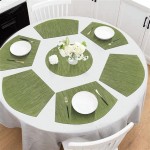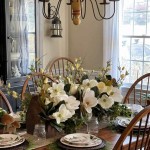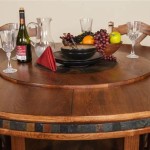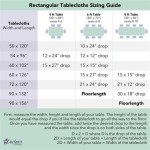The Round Table: An In-Depth Look
The Round Table, a legendary symbol of equality and camaraderie, has captivated the imagination for centuries. Its origins can be traced back to the mythical realm of King Arthur, where knights gathered around a circular table to share meals, fellowship, and quests. In this article, we will delve into the essential aspects of the Round Table, exploring its historical significance, symbolism, and enduring legacy.
Historical Origins
The concept of the Round Table first emerged in the 12th century with the publication of Geoffrey of Monmouth's "Historia Regum Britanniae." In this chronicle, the table is depicted as a symbol of unity and equality among Arthur's knights. The idea of a circular gathering place without a head or foot signified that all who sat at it were of equal rank and importance.
Symbolic Meaning
The Round Table has a profound symbolic meaning that extends beyond its historical roots. The circle represents wholeness, unity, and the absence of hierarchy. The fact that there is no head or foot at the table emphasizes that all participants have equal status and that no one individual holds supreme authority.
The Knights of the Round Table
The Round Table was renowned for its legendary knights, who embarked on perilous quests and embodied the ideals of chivalry. Among the most famous knights were Sir Lancelot, Sir Gawain, and Sir Galahad. Each knight represented a specific virtue or trait, such as bravery, loyalty, or purity.
Camelot and the Quest for the Holy Grail
The Round Table is inextricably linked to the legendary kingdom of Camelot, which served as the court of King Arthur. Camelot became a symbol of an ideal society, where knights lived by the highest ethical standards and pursued the elusive Holy Grail. The quest for the Holy Grail represented a spiritual journey, a search for transcendence and enlightenment.
Legacy and Influence
The Round Table has had a profound impact on Western culture and literature. It has inspired countless works of art, literature, and music. The ideals of equality, camaraderie, and chivalry associated with the Round Table continue to resonate with people today.
Modern Applications
The concept of the Round Table has been adapted in various contemporary settings. It is often used as a symbol of inclusivity, participation, and collaboration. Round table discussions, for example, are a common format for meetings where participants can share ideas and perspectives on an equal footing.
In conclusion, the Round Table stands as an enduring symbol of unity, equality, and the pursuit of noble ideals. Its historical origins, symbolic meaning, legendary knights, and enduring legacy have left an indelible mark on Western culture. Whether it is through the tales of King Arthur and his knights or through modern-day applications, the Round Table continues to inspire and remind us of the power of collaboration, respect, and the pursuit of a better world.

Round Table And Three Chairs On A White Background With Shallow Depth Of Field Premium Ai Generated Image

Canfield Teak Circular Wooden Table 1 3m

Canfield 5ft Teak Round Garden Table 1 5m

How Far Apart Should Round Folding Tables Be Setup National Event Supply

Suffolk 60cm Round Table And Director S Chair Set

Wooden Round Table At Rs 5200 In Jodhpur Id 15755693488

Adele Dining Table Round Img Comfort
Flipkart Com Rakaenterprises Creative Round Table Top Mold Silicone 12 Inch 2 Cm 20mm Depth

Flipkart Com Rakaenterprises Raka Diy Round Table Top Resin Mould 24 Inch X 20 Mm Depth Huge Size

Designer Duncan 105 Oak Round Scandinavian Dining Table Actona For Kitchen
Related Posts








